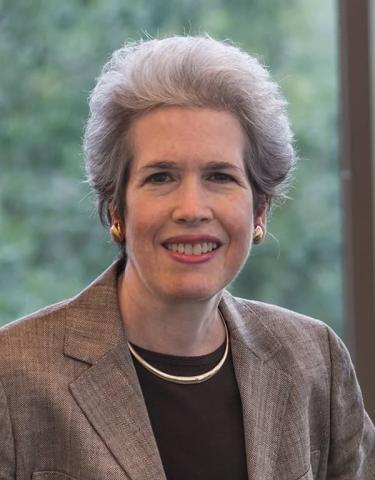Kim C. O'Connor, PhD
Professor of Chemical Engineering

Education & Affiliations
Biography
Prof. O’Connor specializes in stem cell engineering. She earned a B.S. magna cum laude in chemical engineering from Rice University where she was a George R. Brown, Robert A. Welch and Max Roy Merit Scholar, and a recipient of the Texas Society of Professional Engineers Outstanding Engineering Student Award. As a Weyerhaeuser Fellow at Caltech, Kim O’Connor earned a doctorate under the tutelage of James E. Bailey, a leader in the field of biomolecular engineering. After completing postdoctoral training in molecular and cellular biology at Caltech and Northwestern University, Dr. O’Connor joined the faculty of Tulane University where she is currently a professor in the Department of Chemical and Biomolecular Engineering and holds courtesy appointments in the School of Medicine. She has served as a visiting professor in the Center for Cell and Gene Therapy at the Baylor College of Medicine.
Prof. O’Connor’s research focuses on the heterogeneity of mesenchymal stem cells (MSCs) and its implications for regenerative therapy and disease. Her research group has made several important contributions to the field of MSC heterogeneity, including the development of a high-capacity assay of heterogeneity, resolution of proliferation-potency relationship at the clonal level, and identification of cell-surface markers of MSC subsets. Her current research evaluates the prevalence of aging cells in MSC cultures, elucidates the molecular profile of these aging cells, and quantifies their regenerative potential. MSCs differentiate into multiple mesenchymal cell lineages and secrete trophic factors to regulate a variety of cellular processes, including fibrosis and the immune system. As such, these adult stem cells have potential application to treat a range of disorders including arthritis, heart attack and cancer.
To date, Prof. O’Connor has obtained research funding as principal investigator from such agencies as NASA, NIH and NSF that resulted in the publication of over 120 research articles, including 65 peer-reviewed publications and patents cited over 1600 times. Her research has been featured in leading professional journals and in poster competitions. Prof. O’Connor has been invited to deliver numerous presentations on this work in the US and abroad. A total of over 20 postdoctoral fellows and graduate students, as well as nearly 30 undergraduates have trained under her direction. They have obtained prestigious positions at NIH, Memorial Sloan-Kettering Cancer Center, Johns Hopkins and Merck, among others.
In the area of professional service, Prof. O’Connor has served on the Editorial Board of the Journal of Cellular and Molecular Medicine. She founded and directs a Combined Degree Program that awards a M.S. in Biomedical Sciences and Ph.D. in Chemical Engineering, and was past Co-Director and Interim Director of the Interdisciplinary Molecular and Cellular Biology Graduate Program (now, Biomedical Sciences Graduate Program) that encompasses over 100 faculty across three campuses of Tulane University. Additionally, Prof. O’Connor has served as Chair of the Promotion and Tenure Committee for the School of Science and Engineering at Tulane and founded the Newcomb lectureship series to recognize professional accomplishments of female chemical engineers.
For her research achievements, Prof. O’Connor is the 2013 recipient of Biotechnology & Bioengineering’s Gaden Award for an outstanding publication that reflects exceptional innovation and creativity, NASA Space Act Award, Tulane IDEA Award, and Tulane Health Sciences Award for Leadership & Excellence in Intercampus Collaborative Research. For her teaching, she has been honored by Who’s Who Among American Teachers and by Tulane University with the Interdisciplinary Teaching Award, Provost’s Award for Excellence in Undergraduate Teaching, and Society of Tulane Engineers and Lee H. Johnson Award for Teaching Excellence. Her academic achievements have been recognized by Sigma Xi, Tau Beta Pi and Phi Lambda Upsilon.
Contributions
SD Madsen, MK Giler, BA Bunnell, and KC O’Connor. Illuminating the regenerative properties of stem cells in vivo with bioluminescence imaging. Biotechnol J, DOI: 10.1002/biot.202000248 (2020). [SDM & MKG are co-first authors.]
KC O’Connor. A cautionary tale about the use of colony-forming efficiency as a proxy for the survival of mesenchymal stem cells. Stem Cell Res Ther, 11: 292 (2020).
SD Madsen, SH Jones, HA Tucker, MK Giler, DC Muller, CT Discher, KC Russell, GL Dobek, MC Sammarco, BA Bunnell and KC O’Connor. Survival of aging CD264+ and CD264- populations of human bone marrow mesenchymal stem cells is independent of colony-forming efficiency. Biotechnol & Bioeng, 117 (1): 223-237 (2020). [Featured on back cover]
KC O’Connor. Molecular profiles of cell-to-cell variation in the regenerative potential of mesenchymal stem cells. Stem Cells Int, article ID 5924878 (2019).
SD Madsen, KC Russell, HA Tucker, J Glowacki, BA Bunnell and KC O’Connor. Decoy TRAIL receptor CD264: A cell surface marker of cellular aging for human bone marrow-derived mesenchymal stem cells. Stem Cell Res Ther, 8: 201 (2017).
